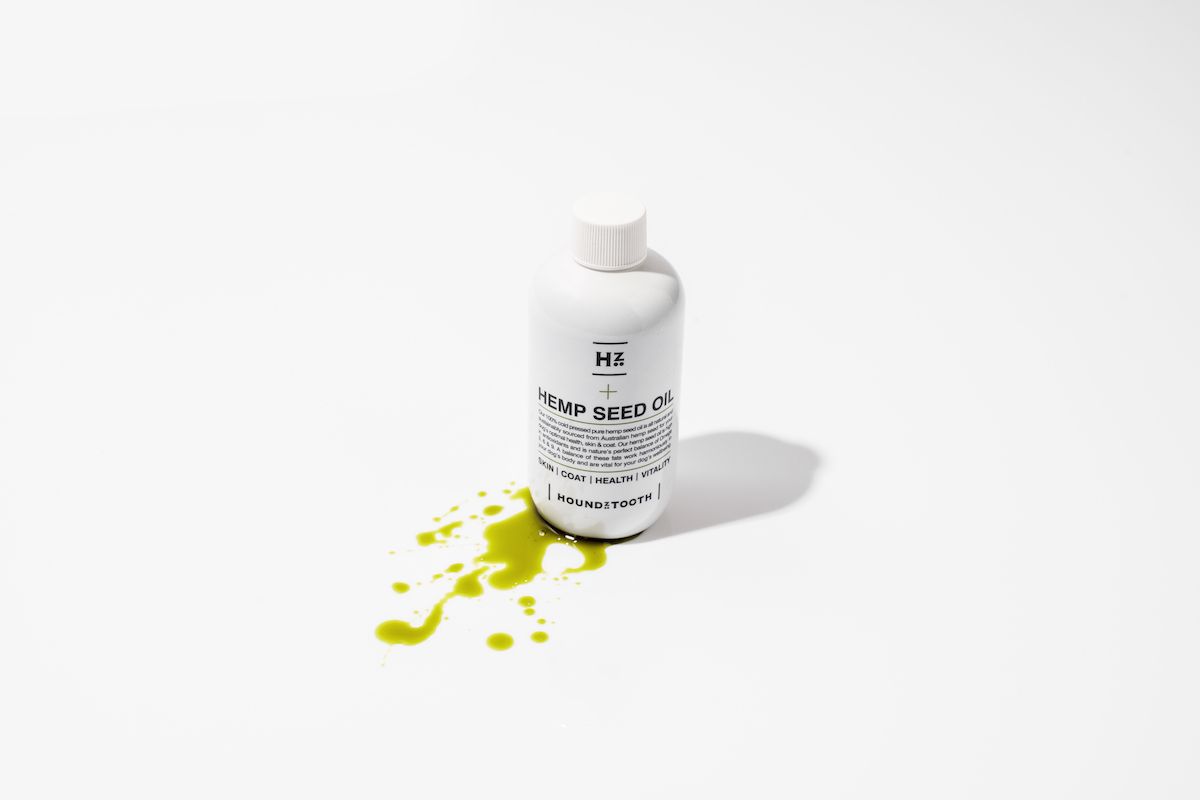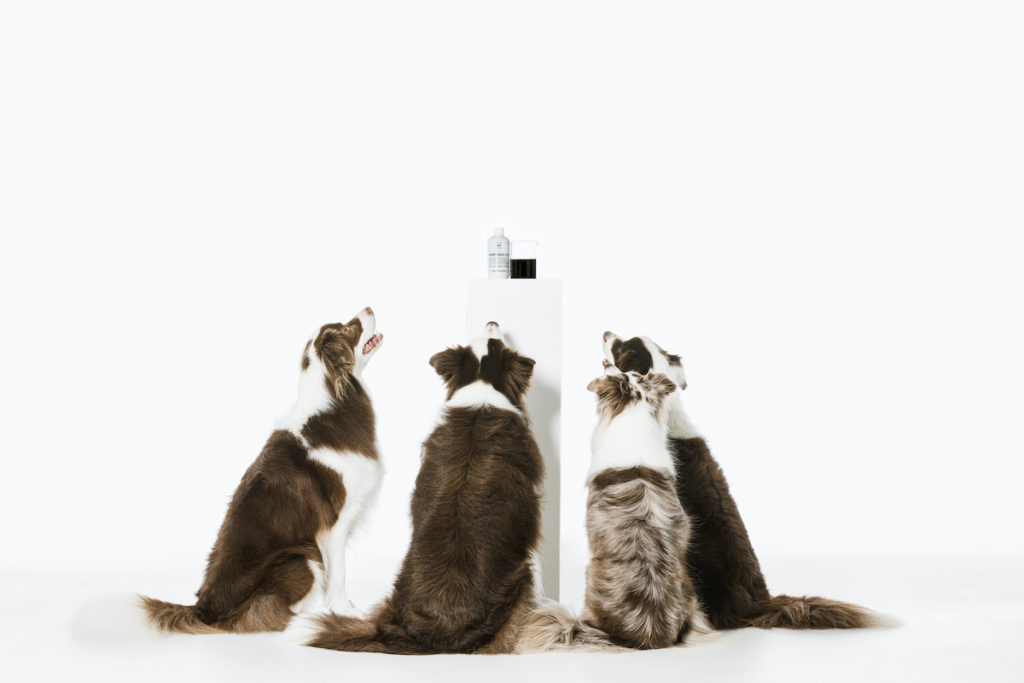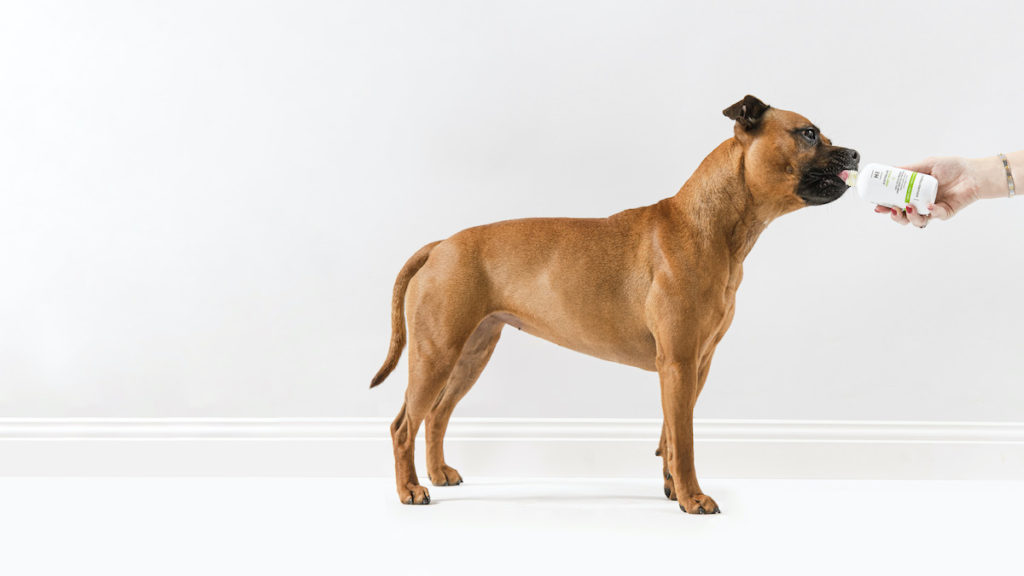Australian Hemp Oil for Dogs with Itchy Skin

Hemp seed oil for dogs has many proven benefits
Used as a natural remedy for both humans and canines alike, our Australian hemp oil for dogs has a long list of beneficial properties.
An all-natural oil high in antioxidants and rich in omegas 3, 6 and 9, hemp seed oil has the power to improve your pup’s skin and coat, boost their gut health and wellbeing and reduce inflammation. It’s even been used for mild anxiety in combination with our Hemp Anxiety Aid.
Itchy skin isn’t fun for anyone
Your dog could be itching for any number of reasons, including fleas, allergies and infections. Their itch could also be caused by having come into contact with irritants or chemicals via grooming or general household products.
Itchy skin isn’t fun for anyone, and when your pup is suffering from incessant scratching, it can be a hard thing to manage – for both you and your furry friend.
Say goodbye to summer and hello to scratching
You might notice that your dog only itches at certain times of the year, and there is a very good reason for that. As the seasons change, so do the allergens in our environment.
The changing of the seasons will see your dog come into contact with allergens that can leave their skin, paws and ears feeling painfully itchy.
Our Hemp Seed Oil can help to relieve this seasonal itchiness and prevent it from causing your pup any unnecessary stress.
Australian hemp oil for dogs: a safe treatment for itchy skin
Loaded with healthy nutrients, our specifically formulated Hemp Seed Oil 100% Cold Pressed really packs a punch in easing your pup’s itchy skin. Brimming with fatty acids, it contains omega 3 to enhance your dog’s skin and coat, and omega 9 to target inflammation.
Add to that list Vitamin A for another skin and coat boost, and Gamma Linolenic Acid (GLA) to prevent inflammatory health conditions, allergies and general skin conditions, and you’ve got a powerful combination of components that help to tackle, ease and relieve itchy skin.
How much hemp seed oil is safe for my pet to consume?
The Hemp Seed Oil dosage that you give to your dog will vary depending on their size. Our recommended daily dosage is 5ml (1 tsp) per 10kg of your dog’s body weight.
When introducing anything new to your dog’s diet, we recommend doing it slowly. Introduce our Hemp Seed Oil to your dog over 3 to 5 days and build up to their daily dose.
Find out more reasons to use hemp seed oil for your dog.
Houndztooth alternatives that also help to relieve itchy skin

For best results, we recommend using our Hemp Seed Oil in conjunction with one of our other naturally-derived products – we have a selection of grooming and health products that can also help to relieve your pup’s problem prone skin.
- Coco’s Blend No.4 Rescue & Relief Spray. Specifically formulated for dogs suffering from problem prone skin, this topical helps to ease the scratchies from the outside in.
- Stella’s Blend No.2 Dog Shampoo For Scratchy Skin. Our original dog shampoo for skin prone to irritation, Stella’s Blend No.2 contains both oatmeal and Manuka honey extracts. Together, they cleanse, moisturise and condition your pup’s problem prone skin.
Australian hemp oil for dogs can your dog’s skin and coat

While your pup’s itchy skin may start out as a small, seemingly harmless affliction, it can lead to a more serious issue if not addressed and properly treated.
Our Hemp Seed Oil can help to improve your furry friend’s skin and coat .
Please note: If your dog is suffering from extreme itching, we recommend speaking with your vet for the best treatment plan for your pup.
